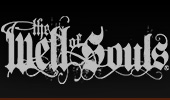The Well of Souls (The Final Arbiter of Destiny) - Chapter 7: War
The People of Darkness were starving and sickness and disease was rampant. Since all of the innovators and productive people had departed for the north, all they had left were empty buildings without the abilities to run the businesses. Attempts were made, but too much knowledge and talent had migrated north for commerce to continue to work.
Vamar convinced the people that their troubles were the fault of the People of Light. The People of Darkness felt it was unfair that the People of Light had left them helpless as they had. Eighty percent of the population before The Great Exodus was on the side of darkness; they were cronies—the greater part of public servants, news media, academia, entertainment, and much of the proletariat and organized labor—the overwhelming majority.
Scheming as to how they could get the plants running again, Vamar sent parties north to kidnap those who could operate their factories and the people were behind him. After they succeeded with their captures, their captives lived in slavery and were forced by torture to comply with their demands. If a key leader could be captured with family members, that was even a greater success as the family members could be held hostage to torture, forcing the leader’s will.
Vamar had many of the factories converted to making armaments. Huge and overwhelming amounts were made. Hunger was widespread and misery was everywhere. Vamar, in his great eloquence, convinced the people that the reason for their despair was because of the People of Light. He told them it was inhumane for them to do what they had done, that war against them was justified and the only answer. The people acquiesced.
Warage took to training the army soldiers. He taught them how to battle effectively. He taught them that killing was not the most effective outcome. Rather, maiming was more effective as it puts the victim out of commission and took additional resources to help. Also, indiscriminate killing and mutilating enemies instilled fear in them. Capturing them and torturing them instilled an even greater fear.
Warage was a master at these tactics. Warage took on the role of Chief Battlefield General. In the field, prosecution of the war was under his command. Back at home, Vamar took on the role of Chief Political Leader and Absolute Dictator.
The People of Darkness were aroused and passionate. They despised the People of Light. But their passions were not great enough to volunteer to go to war. Like everything else they wanted, they wanted someone else to do it as they thought they personally were special: protection from failure, protection from poverty and freedom was to be given to them without a struggle. Their vices and venialities were to be overlooked and excused, even though their character was the result of their own choices. It didn’t matter that the freedom they wanted handed to them took it away from another who righteously triumphed for it.
The People of Darkness were organized for war and Warage began to move his army north. His military was massive and made up entirely of those forced to enlist. Those who enlisted fought because if they didn’t they would be tortured. Their equipment included multitudes of cannons, infantry, and specialized forces. The cannons were large and powerful and capable of great destruction. The infantry was nearly endless and the specialized forces were able to slip in behind enemy lines and create great terror.
The People of Light were aware of the southern people and were gearing for action to deal with the kidnappings that were occurring, but they were severely outnumbered and unable to prepare in time since the Great Exodus. The People of Light just wanted to live in freedom. They had left the south without their factories, plantations, or lumber mills. They were willing to start over, but for the People of Darkness that wasn’t enough. They wanted the People of Light to be brought back and make the system of government work again like before. They wanted specifically three things: revenge, slaves, and elimination of political foes. Freedom—or in their eyes, privilege—enjoyed by any people on terms other than those decided by the People of Darkness was not acceptable.
The People of Light valiantly rallied in masses, but to no avail. It was a slaughter; the People of Darkness overwhelmed the outnumbered People of Light and terrorized, raped, and tortured them. The People of Darkness savored their revenge and inflicted their despotism in the name of their own circumstances. They justified their aggression by saying, “You chose to leave us, so you bear the consequences.” A concept of responsibility the People of Darkness personally never accounted for.



